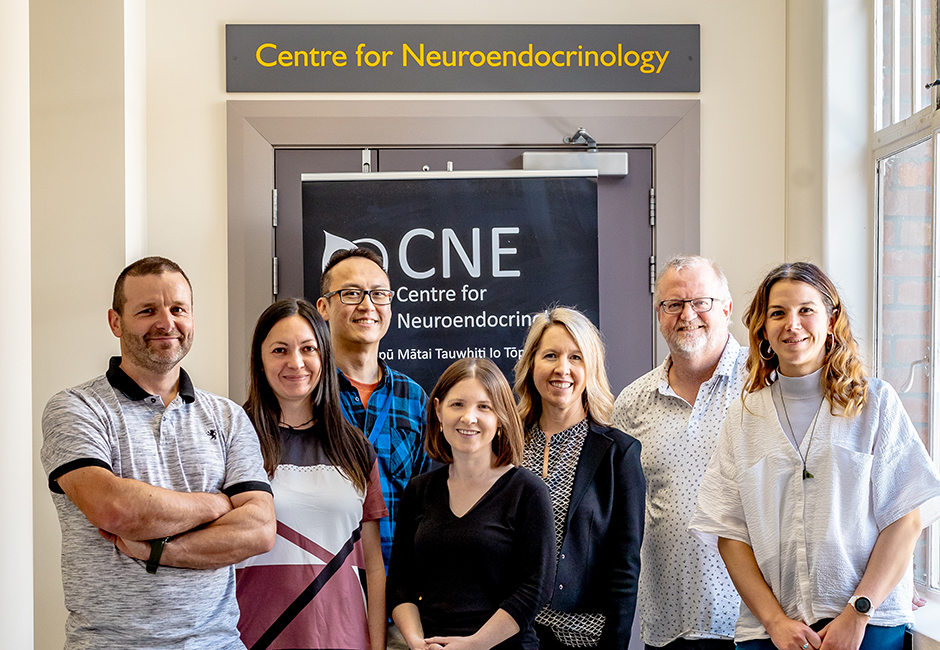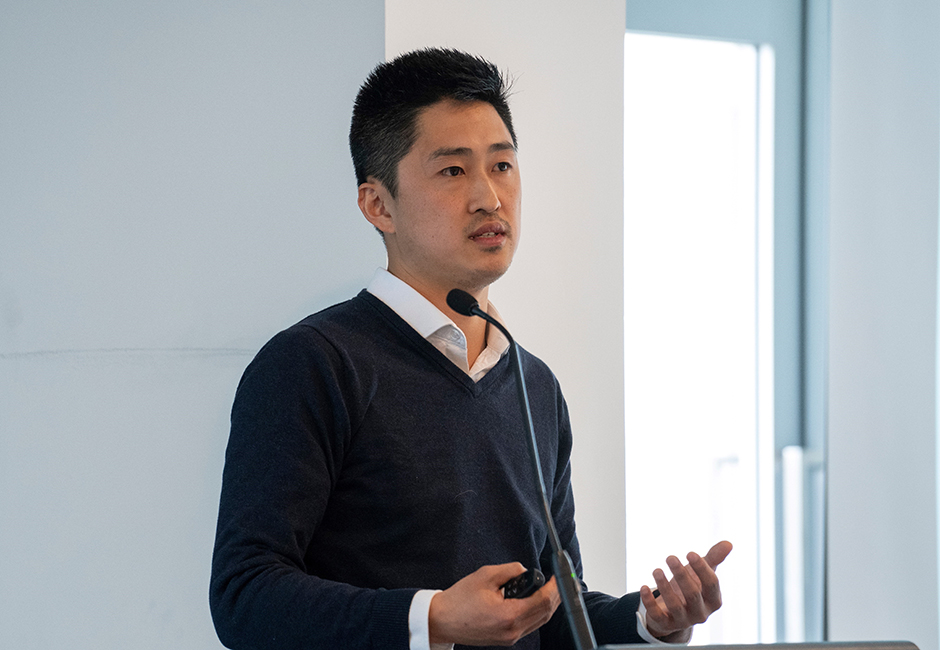
Left to right: Professor Greg Anderson, Dr Caroline Decourt, Dr Joe Yip, Dr Rosie Brown, Professor Rebecca Campbell, Professor Dave Grattan, Dr Teodora Georgescu.
Researchers at the Centre for Neuroendocrinology have achieved remarkable success in this year's Marsden grant round from the Royal Society Te Apārangi. All the applications that made it to the final round were ultimately funded, receiving a total of nearly 4 million dollars across various projects.
One of the funded projects, led by Professor Dave Grattan with Dr Joe Yip, focuses on how pregnancy hormones influence the synchronization of neuronal activity in a specific neural circuit. The study aims to understand the changes in the activity of dopamine neurons in the hypothalamus, which control the release of the hormone prolactin. During pregnancy and lactation, these neurons transition from being highly synchronized to irregular and disorganized, which is crucial for milk production. This research will utilize advanced techniques, such as genetically encoded calcium sensors in transgenic rats and in vivo fiber photometry, to observe and manipulate the patterns of neuronal activity in conscious animals.

Dr Joon Kim.
Another project, headed by Professor Rebecca Campbell with Dr Kelly Glendining and Dr Joon Kim, delves into the role of gonadotropin-releasing hormone ( GnRH ) neurons in the brain. These neurons are known for their involvement in reproduction, but emerging evidence suggests they may also play a significant role in memory and cognition. The research aims to identify distinct subpopulations of GnRH neurons and investigate their unique functions using advanced neuroscience tools.
Dr Teodora Georgescu's project, supported by a Fast Start PI grant, explores how pregnancy hormones, such as prolactin and estrogen, affect the suppression of fever responses during pregnancy. Specifically, her research will examine the activity of fever-responsive neurons in the ventral medial preoptic area and investigate whether hormonal actions are responsible for the loss of fever responses during late pregnancy. Understanding this mechanism could have significant implications for maternal and fetal health, potentially offering insights into managing infection symptoms using hormones.
Professor Greg Anderson and Dr Caroline Decourt are investigating how stress impacts female fertility by studying a group of brain cells called RFRP neurons. Their research aims to uncover the neuronal circuitry connecting stress and reproduction and determine how these neurons interact with stress hormones and other reproductive neurons. By using transgenic mice and selective manipulation of neuron activity, they hope to find insights that may lead to ovulation induction protocols for women experiencing chronic stress.
Dr Rosie Brown, the first CNE-recipient of a Rutherford Discovery Fellowship, will focus on the critical role of hormones in maternal mood and behaviour. She will investigate how progesterone affects parental behaviour, specifically within the medial preoptic area (MPOA) of the brain. Her work will aim to understand the impact of progesterone during pregnancy and the postpartum period and its role in postpartum mood disorders, potentially leading to strategies for improving postpartum mental health.
These diverse and groundbreaking projects supported by the Marsden grant round promise to expand our understanding of hormones' influence on the brain, pregnancy, and maternal behaviour, ultimately contributing to advancements in healthcare and neuroscience.